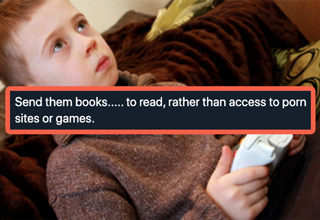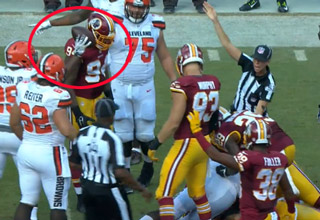Why Free Market Capitalism Doesn't Work
Why Free Market Capitalism Doesn't Work
Brief description from The Free Dictionary by Farlex:
"Free Market
A system of economics that minimizes government intervention and maximizes the role of the market. According to the theory of the free market, rational economic actors acting in their own self interest deal with information and price goods and services the most efficiently. Government regulations, trade barriers, and labor laws are generally thought to distort the market. Proponents of the free market argue that it provides the most opportunities for both consumers and producers by creating more jobs and allowing competition to decide what businesses are successful. Critics maintain that an unfettered free market concentrates wealth in the hands of a few, which is unsustainable in the long term. In practice, no country or jurisdiction has a completely free market."
In a free market, supply and demand are supposed to regulate the cost and quality of items. Prices would be based on supply and demand rather than on projected earnings. In a society where everyone was fair and good and played by the rules, if one company consistently produces poor quality products or offers poor quality of service, consumers would stop buying from the poor quality manufacturer and the better quality seller or provider of goods or services. Prices would fluctuate according to supply and demand and everything would reach an equilibrium. Unfortunately, not all companies are fair and good.
Larger companies found ways to keep out the competition. Since they had more reserves than the smaller companies, they could open a shop near another shop that offered the same type of good or service and offer their products at an artificially reduced price until the other company or companies went out of business, at which point the larger company could raise their price to whatever they felt they could get for their product with all the competition gone. Eventually, one company or a small group of companies would end up with a monopoly or near monopoly. Larger companies also influence government officials through lobbyists.
Some of you may remember the movie Tucker: The Man and His Dream (1988). It told the story of an American automobile maker trying to break into the car production industry with his safer product. He was met with extreme resistance from the Big Three automakers. It shows how capitalism in the United States is harmed by efforts of large corporations against small entrepreneurs. Some of you may remember the case of John DeLorean whom some feel was set up to keep his automobile company off the market. In 10. The Rise and Fall of John DeLorean, it states.
"DeLorean suggested that the government was out to destroy him because the Big Three automakers wanted to see his enterprise fail; at other times he surmised that either the British government or the Irish Republican Army had set him up.
In 1984, DeLorean was acquitted of all charges after a federal judge ruled that the FBI operation had been a clear case of entrapment."
Government tried enacting laws to break up the monopolies and unfair business practices, but corporations found ways to get around the new laws. For instance, someone in charge at one corporation can sit on the board of directors of another corporation. This has been done in the oil, chemical, and auto industries for certain. While they give the appearance of being in competition, they are actually working together to keep new companies from arising as competition. They also engage in buying out patents for new products and technologies and bury them rather than use them so that they can continue operating as usual and not have to worry about someone else getting the patents and offering a superior or less expensive product. They have little interest in using the patents. Their interest is keeping the new ideas and technologies off the market. This prevents capitalism from working as it was intended.
Another problem with free market capitalism is that it doesn't take into consideration the unemployed, disabled, and elderly. Before the enactment of Social Security, if you didn't make enough income to save for retirement, or if you had the misfortune of becoming disabled or being born with a disability, the only hope you had of staying alive was for some stranger to take pity on you. Perhaps a church might help on occasion or some other group who might lend a helping hand, many were forced to live in poverty.
From an article in the New York Times.
"The
Depression swept this world away. Many of the elderly could no longer
find work. Those who had been lucky enough to have a pension or some
savings saw them disappear. And many who relied on their children saw
them buckle under the strain. "
In the article, Roosevelt said,
"We can never insure 100 percent of the population against 100 percent of the hazards and vicissitudes of life,'' Roosevelt declared. ''But we have tried to frame a law which will give some measure of protection to the average citizen and to his family against the loss of a job and against poverty-ridden old age."
From the Center on Budget Policy and Priorities released in 1999.
"Social Security reduces the proportion of elderly people living in poverty from nearly one in two to fewer than one in eight, according to a new study released today of Census data. The study found that in 1997, nearly half of all elderly people 47.6 percent had incomes below the poverty line before receipt of Social Security benefits. After receiving Social Security benefits, only 11.9 percent remained poor.
As a result, the study said, Social Security raised out of poverty more than one in every three elderly Americans. The program lifted 11.4 million elderly people above the poverty line.
Without Social Security, the study found, 15.3 million elderly had incomes below the poverty line. After Social Security, only 3.8 million elderly did. Three-fourths of those elderly people who would have been poor without Social Security were lifted from poverty by it.
The study, "Social Security and Poverty Among the Elderly," found Social Security's effects in shrinking poverty to be most striking among elderly women. Seven million of the 11.4 million elderly people whom Social Security lifted from poverty in 1997 more than 60 percent were women."
Without some social programs, capitalism can be a cruel and heartless system. When the economy is strained, as it is now, it becomes even worse. The truth is that we are now in a situation where depression as bad as the 1929 Great Depression is upon us. To make matters worse, the prisons are already overcrowded and food banks are already having trouble keeping up with the demand for food. Large corporations, such as GE, are getting by with paying little or no taxes by taking advantage of tax codes and shifting profits from the American economy to overseas and offshore.
"While
General Electric is one of the most skilled at reducing its tax burden,
many other companies have become better at this as well. Although the
top corporate tax rate in the United States is 35 percent, one of the
highest in the world, companies have been increasingly using a maze of
shelters, tax credits and subsidies to pay far less. "
When large corporations don't share in the tax burden, the burden is shifted to the lower income earners who are already feeling the squeeze from high food, utility, and housing costs. Those who can no longer afford their mortgages are forced into the street which means that even more will have to rely on assistance. When you factor in the government corruption from the lobbyists, the average working class person is, for the most part, left out in the cold.
Government regulations do sometimes cause problems and paperwork and add somewhat to the need for price increases, but unrestricted capitalism would result in even more abuses than we currently have. Free-market capitalism sounds good in theory, but like most theoretical economic systems, in practice, they rarely work as theorized.
Sources:
10. The Rise and Fall of John DeLorean, The 80s Club The Politics and Pop Culture of the 1980s, http://eightiesclub.tripod.com/id305.htm
SOCIAL SECURITY REDUCES PROPORTION OF ELDERLY WHO ARE POOR FROM NEARLY ONE IN TWO TO LESS THAN ONE IN EIGHT, Thursday, April 8, 1999, 10:30 a.m. (ET), http://www.cbpp.org/cms/index.cfm?fa=view&id=1863
The World: Life Before Social Security; 'A Great Calamity Has Come Upon Us', The New York Times, January 23, 2005, http://query.nytimes.com/gst/fullpage.html?res=9B0CEFDE1E38F930A15752C0A9639C8B63&pagewanted=2
G.E.s Strategies Let It Avoid Taxes Altogether, The New York Times, March 24, 2011, http://www.nytimes.com/2011/03/25/business/economy/25tax.html?_r=1






3 Comments